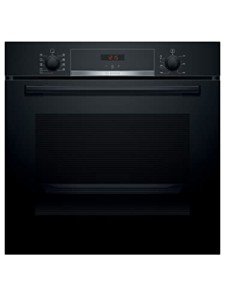The 10 Most Scariest Things About Oven Built In
페이지 정보

본문

Understanding Built-in Electric Ovens: A Comprehensive Guide
In modern-day kitchen areas, built-in electric ovens have ended up being a basic function, providing convenience, efficiency, and an elegant combination into kitchen style. This post aims to inform property owners and cooking enthusiasts about the advantages of built-in electric ovens, essential considerations when picking one, and upkeep ideas to make sure lasting functionality.
What is a Built-in Electric Oven?
A built-in electric oven is created to be installed within cabinetry or walls, flawlessly mixing into the kitchen's architecture. Unlike standalone ovens, these models conserve flooring area and can be positioned at eye level, assisting in simple access and monitoring while cooking.
Advantages of Built-in Electric Ovens
- Space Efficiency: These inbuilt ovens use vertical space, Oven built in making them perfect for smaller sized cooking areas or those seeking to maximize counter space.
- Visual Appeal: Built-in ovens offer a clean and modern look that improves the kitchen's general design.
- Ergonomics: They are set up at comfy heights, decreasing the strain on the back and knees, particularly when filling or unloading meals.
- Advanced Features: Many Built in ovens electric-in electric ovens included state-of-the-art functions like wise controls, convection cooking, and self-cleaning alternatives, which can make cooking easier and more efficient.
- Enhanced Functionality: Models frequently consist of extra functions such as multiple cooking modes, timers, and temperature level probes.
Key Considerations When Choosing a Built-in Electric Oven
When picking a built-in electric oven, numerous aspects need to be considered to guarantee it meets your cooking needs and fits within your kitchen layout.
Size and Capacity
Built-in electric ovens normally can be found in different sizes. It's essential to measure the designated space to guarantee an appropriate fit. Here are typical sizes:
- Single Oven: 24 to 30 inches large, ideal for many cooking tasks.
- Double oven built In: Two separate compartments, enabling you to cook numerous dishes at various temperatures.
- Wall ovens integrated: Available in plus sizes, matched for extensive cooking experiences.
Functions
Choosing features that line up with your cooking routines is vital. Consider the following options:
- Convection Cooking: Distributes heat equally for constant outcomes.
- Smart Technology: Enables remote control and pre-heating through mobile phone apps.
- Self-Cleaning: Simplifies upkeep and cleansing processes.
- Steam Cooking: Adds moisture to meals for much better cooking outcomes.
Setup Requirements
Built-in electric ovens need adequate electrical circuitry and ventilation choices. It's a good idea to seek advice from specialists during the installation phase to satisfy electrical codes and ensure security.
Cost Range
The expense of built in oven to buy-in electric ovens can differ substantially from spending plan choices (₤ 600 - ₤ 1,200) to high-end designs (₤ 2,000 and above). Consider your spending plan and cooking frequency when making a choice.
| Rate Range | Functions | Best For |
|---|---|---|
| ₤ 600 - ₤ 1,200 | Fundamental functions, manual controls | Casual cooks |
| ₤ 1,200 - ₤ 2,000 | Convection, wise innovation | Major home cooks |
| Above ₤ 2,000 | Premium products, advanced functions | Expert chefs or gourmet cooking lovers |
Upkeep Tips for Built-in Electric Ovens
Ensuring that an electric oven runs successfully includes routine upkeep. Here are some practical ideas:
- Regular Cleaning: Wipe down the door and inside the oven after each usage to prevent grease accumulation.
- Self-Cleaning Cycle: Utilize the self-cleaning function regularly (if offered). Follow the producer's instructions for optimal performance.
- Check Seals and Gaskets: Inspect the door seals for wear and tear to maintain cooking efficiency.
- Adjust Temperature: Regularly check and calibrate the oven's temperature for accuracy cooking.
- Expert Servicing: Schedule annual maintenance consult qualified professionals, especially for advanced designs with numerous electronic components.
Often Asked Questions (FAQs)
1. Are built-in electric ovens more efficient than standard ovens?
Yes, built-in electric ovens frequently have better insulation and functions like convection cooking that can prepare food faster and uniformly, saving energy.
2. Can I set up a built-in electric oven myself?
While some handy people might choose to try a DIY setup, it is recommended to employ an expert to ensure safe and compliant installation.
3. Just how much power does a built-in electric oven usage?
Normally, built-in electric ovens consume in between 2,400 to 5,000 watts, depending on the model and features. Always describe the maker's specifications for precise figures.
4. Do built-in electric ovens require unique cabinets?
Yes, built-in electric ovens require custom-made cabinets or wall enclaves that support their weight and permit appropriate ventilation. Ensure that the cabinetry abides by setup standards laid out by the maker.
Built-in electric ovens are a valuable addition to any modern-day kitchen, providing a selection of functions that make cooking more hassle-free and satisfying. By understanding the advantages, choice requirements, oven Built in and upkeep requirements associated with these ovens, customers can make educated decisions that line up with their culinary needs and lifestyle choices.
- 이전글What's The Job Market For Built In Microwave Oven Combo Professionals Like? 25.05.19
- 다음글5 Killer Quora Answers On Best Ovens Uk 25.05.19
댓글목록
등록된 댓글이 없습니다.



